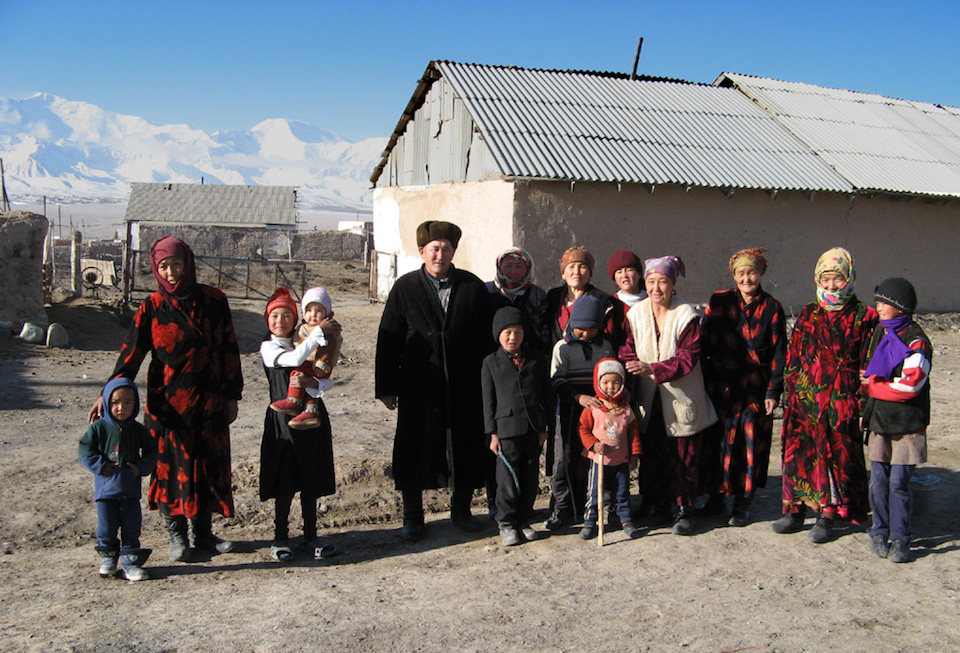For a brief time, the two provocative banners focussed on women’s clothing in Kyrgyzstan’s capital Bishkek faced off, each posing its own rhetorical question.
Only one had the support of the Central Asian country’s secular president, and the second banner disappeared shortly after its debut.
EurasiaNet.org’s Inside the Cocoon blog reported the appearance of the first banners as follows:
Residents of Kyrgyzstan’s capital woke up on July 13 to find stark and, to some, provocative billboards on some of the city’s main thoroughfares.
The huge poster shows three groups of women in a variety of female head covers — some of them in the niqab veil that covers almost the entire face — and the words “Oh poor nation, where are we headed?”
The meaning of the image is slightly cryptic. But the arrangement of the pictures — traditional Kyrgyz dress on the left, niqabs on the right and something looking like a halfway version of those two forms of dress in the middle — would suggest that whoever is behind the stunt is concerned at the stealthy spread of ultra-orthodox Muslim customs in the country.
President Almazbek Atambayev later spoke in support of the billboards, and pledged to put them up around the country, but denied being their originator.
Then, on July 28, the billboards received a response in the form of a banner asking the same question, but instead comparing the well-covered nomadic women of Kyrgyzstan’s past with women in denim shorts and skirts.
Highlighting secular fears about the growing role of Islamic influences from Arabic countries in the ex-Soviet republic of six million, one commenter on the news website Limon.kg wrote:
These new banners are stupid, but the original banners were very relevant, opposing the zombification of Kyrgyz through the wearing of these black sacks. These black sacks are incorrect. Our own national clothing is completely in harmony with Islamic norms.
Others disagreed with this viewpoint, however, and one of the banners protesting the emergence of the niqab was burned in the religiously more conservative province of Batken.
The banners protesting secular women’s clothing had disappeared from Bishkek’s streets in confusing circumstances by July 29.
Bektour Iskender, founder of Kloop.kg, saw in both banners a familiar national patriarchy, which expresses itself in different forms at different times:
Kyrgyz women, like so many women throughout the world, have for the most part been deprived of the opportunity to choose how they should dress.
Unlike many skeptics, I tend on the whole to see progress, even if it is subtle. A Kyrgyz woman in 2016 has a little more freedom in choosing her own clothes than a Kyrgyz woman in 1966 or especially in 1916.
However, our country is periodically infested with parasites – usually privileged heterosexual men – who want to send us back through the mists of time. They somehow believe that they are endowed with the true knowledge of how a Kyrgyz woman should dress and behave.
Journalists from the same media outlet collated a series of amusing memes mocking the “where are we heading” slogans of the two contentious banners.
Full story: globalvoices.org
Written by Akhal-Tech Collective























+ There are no comments
Add yours